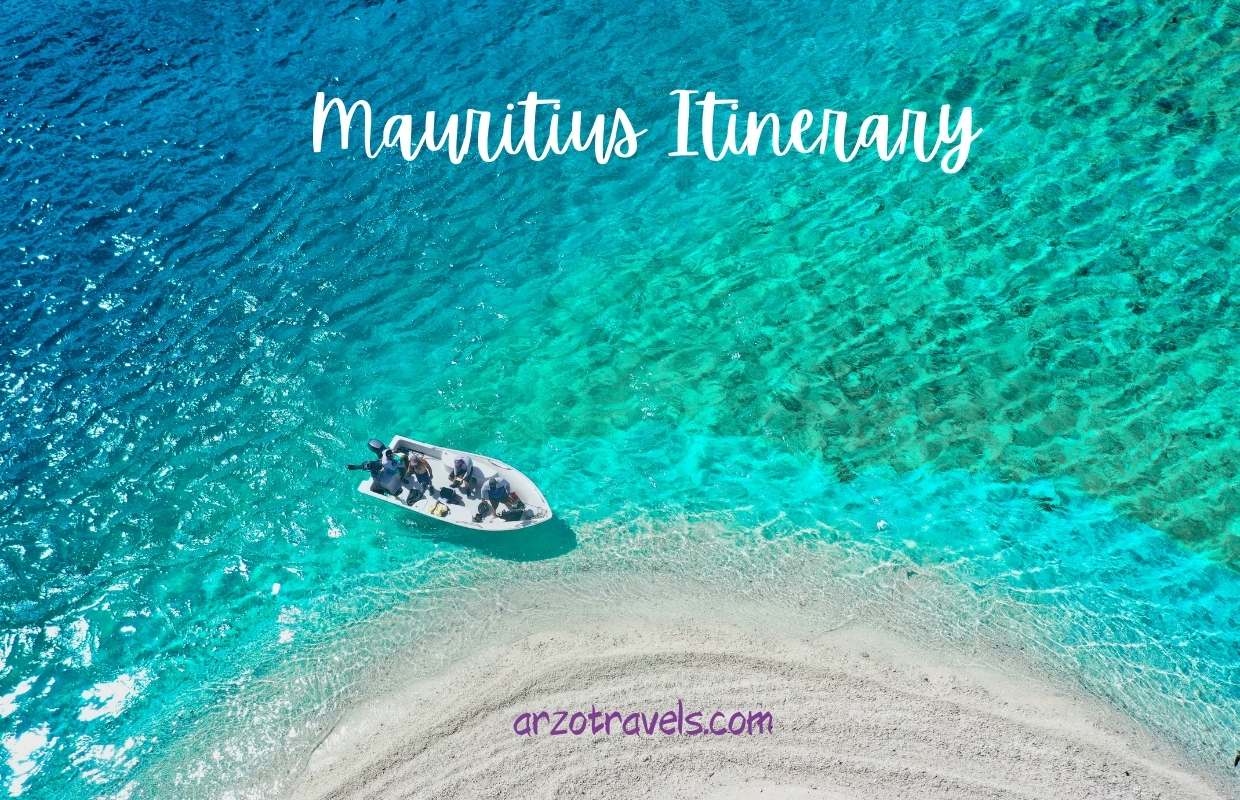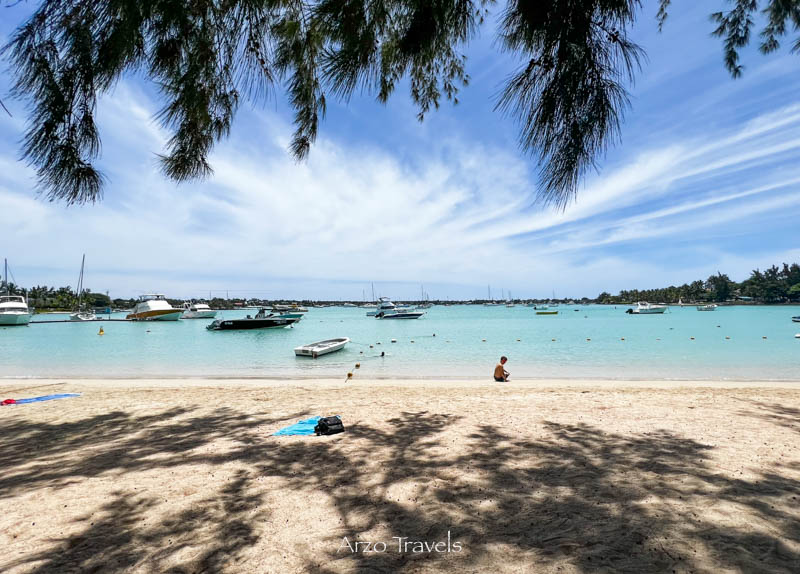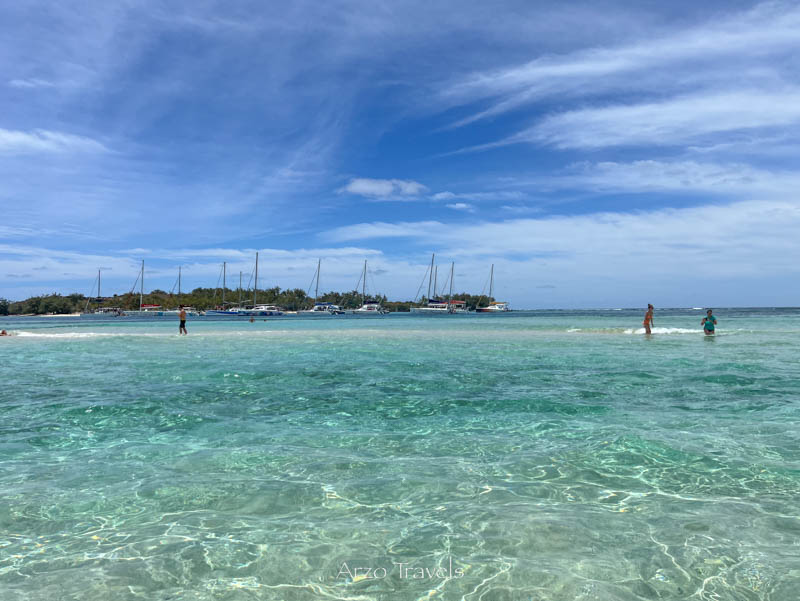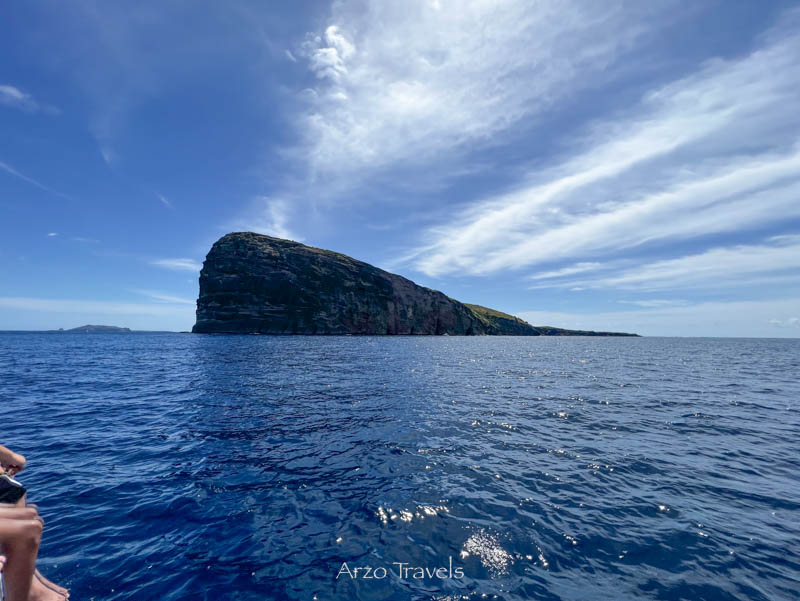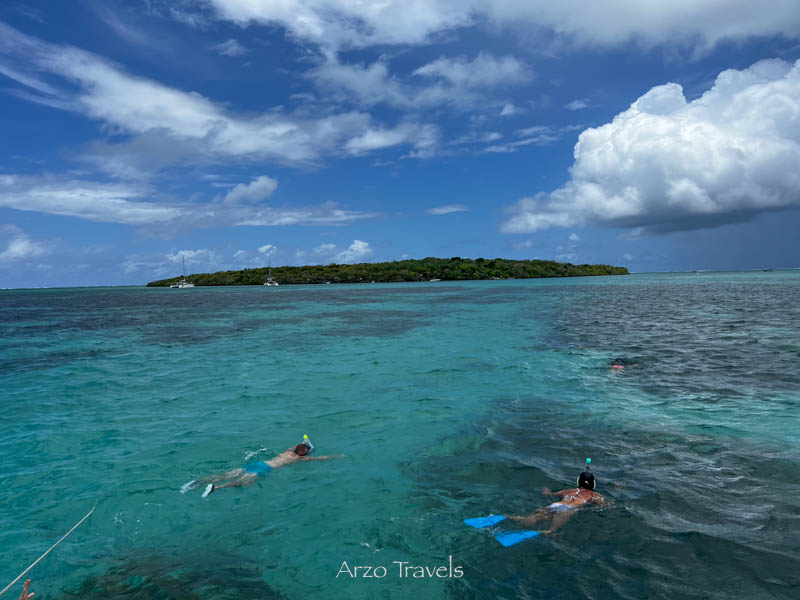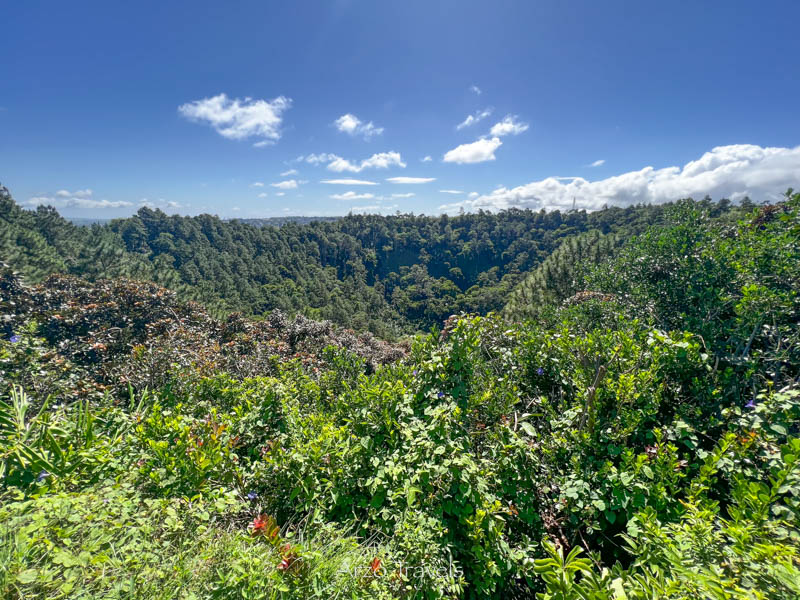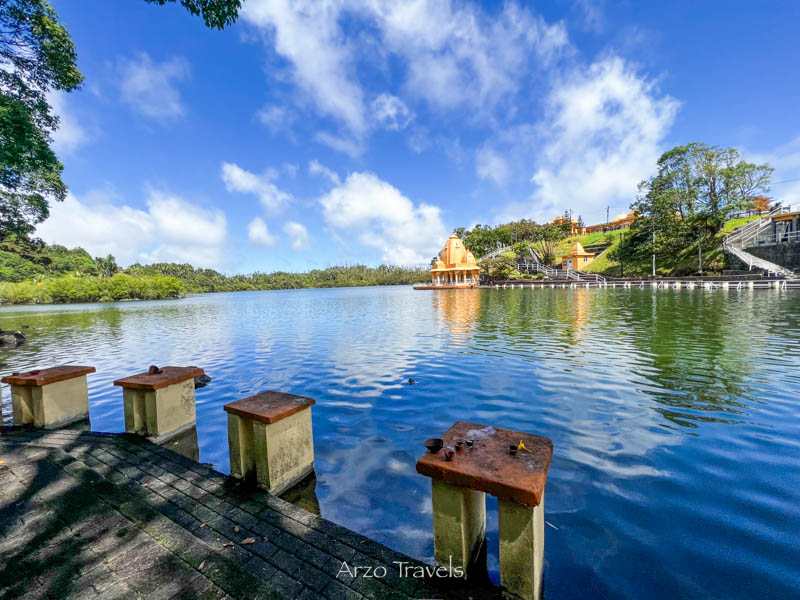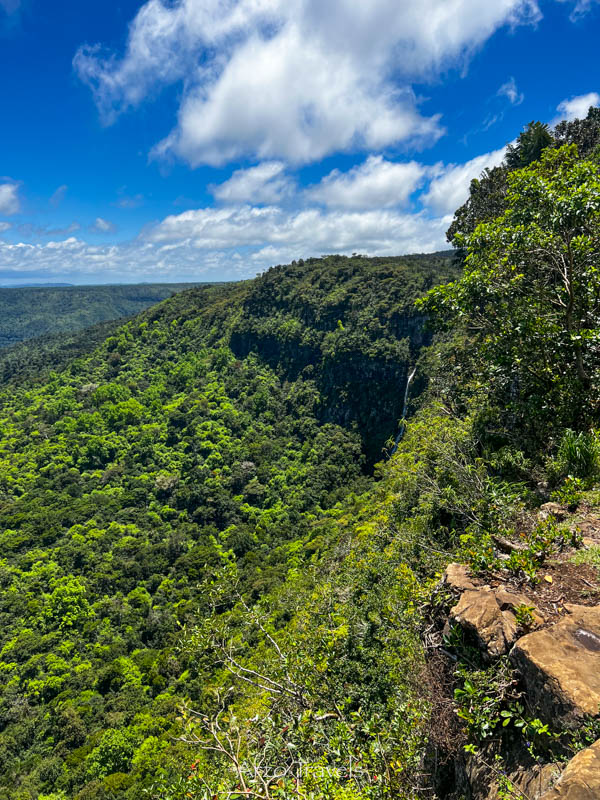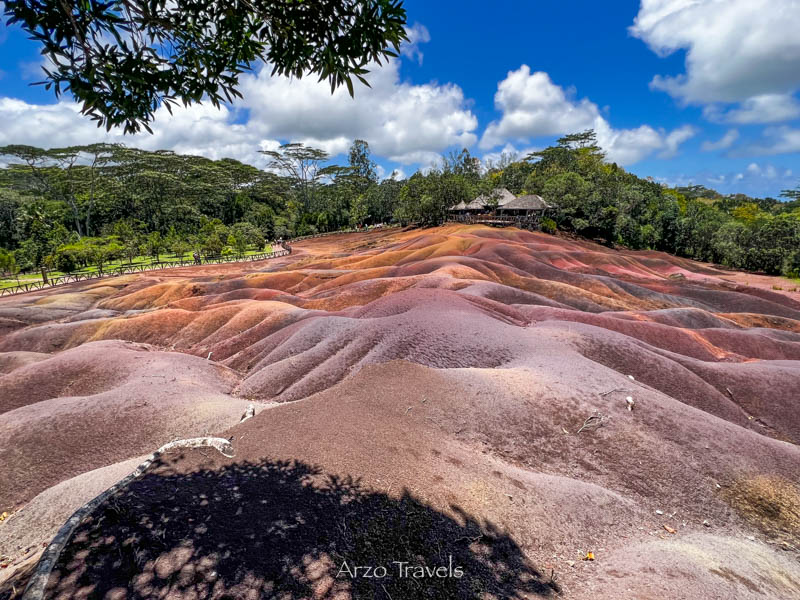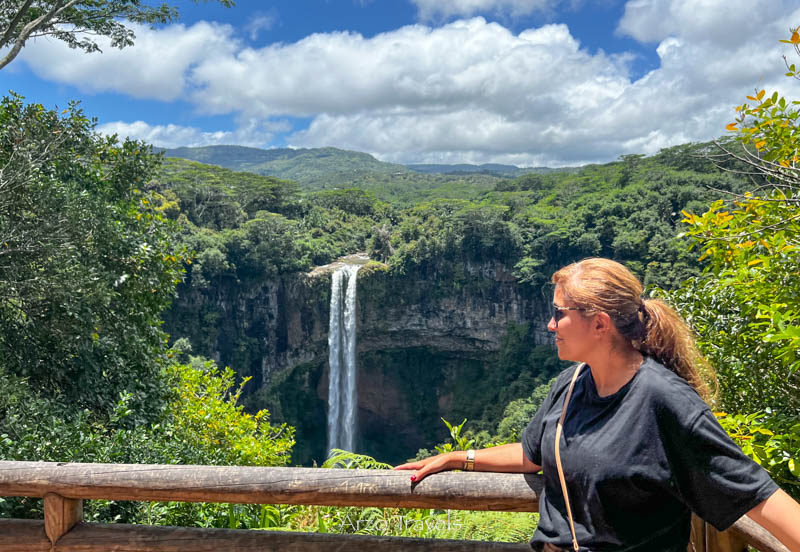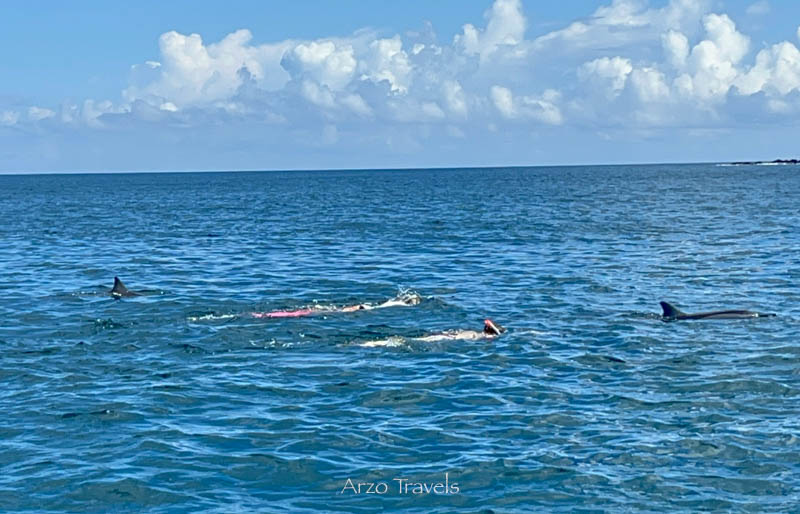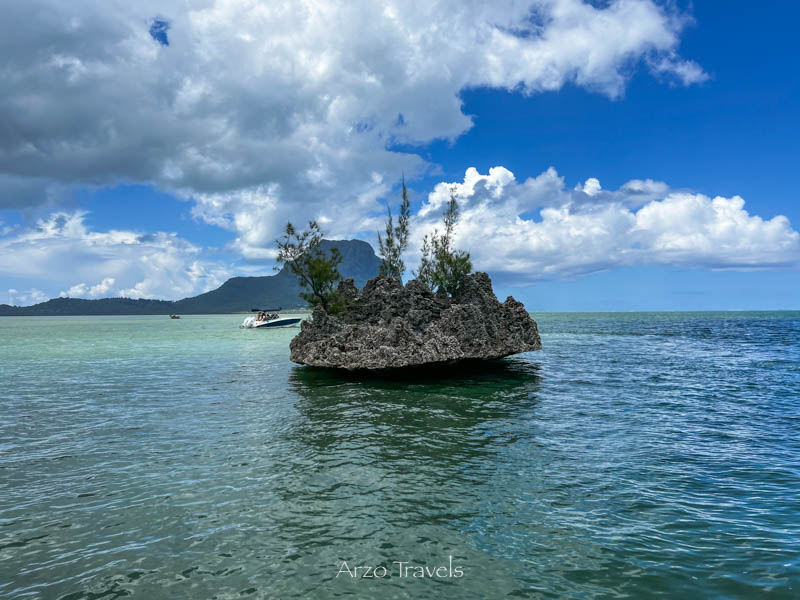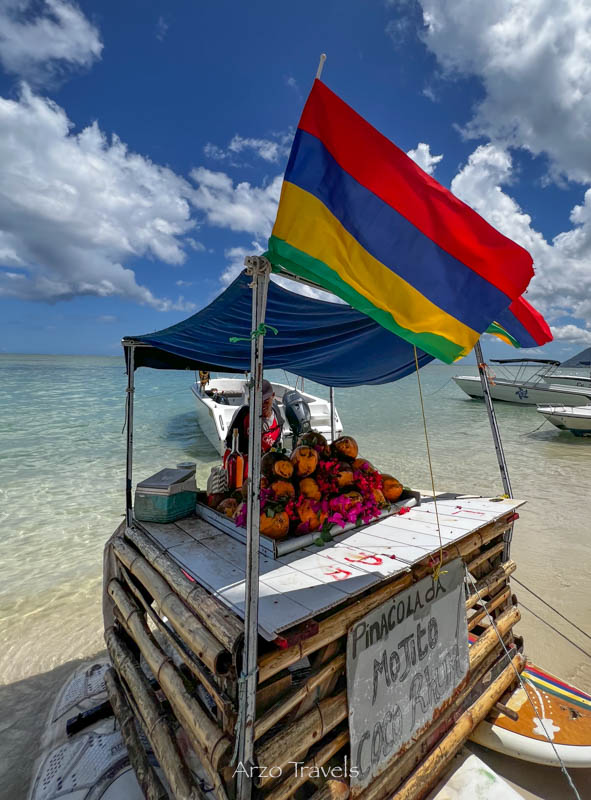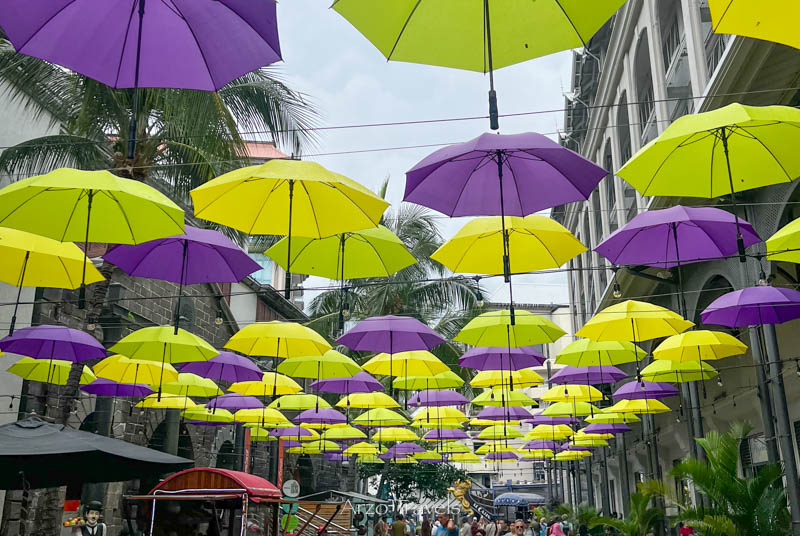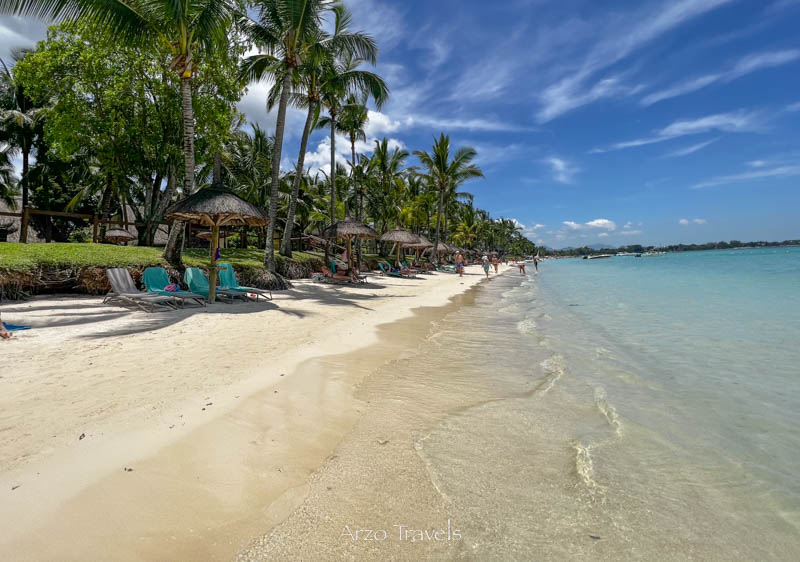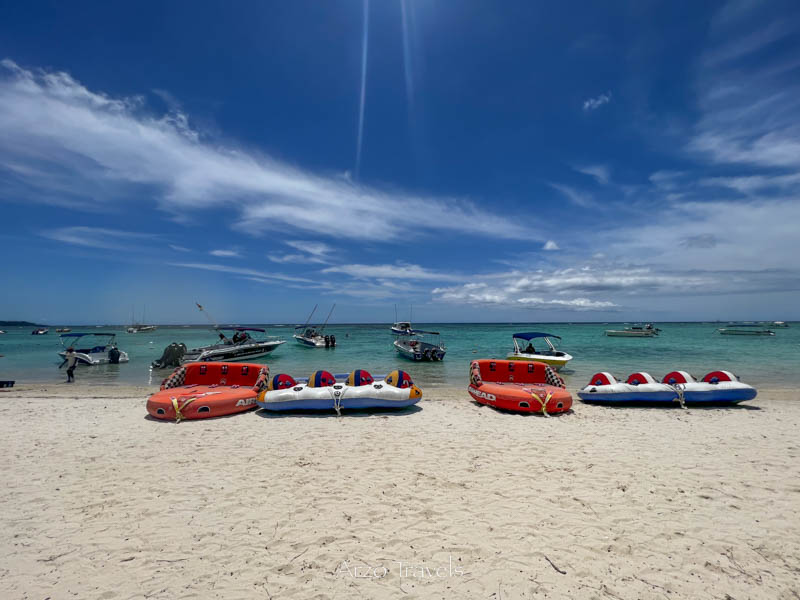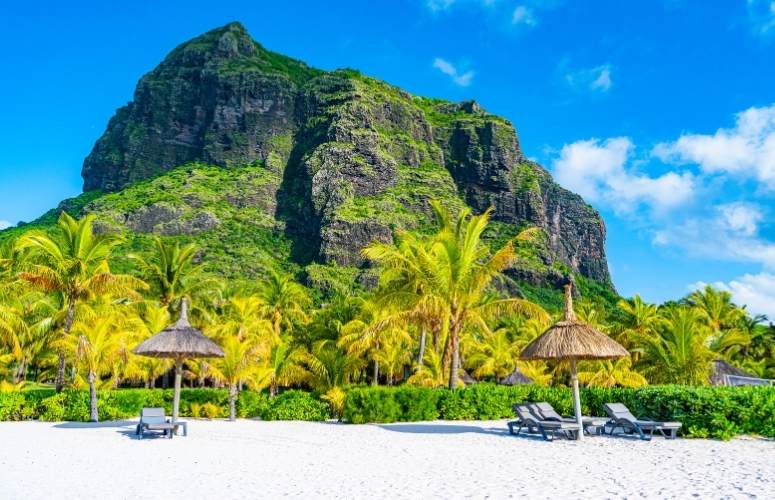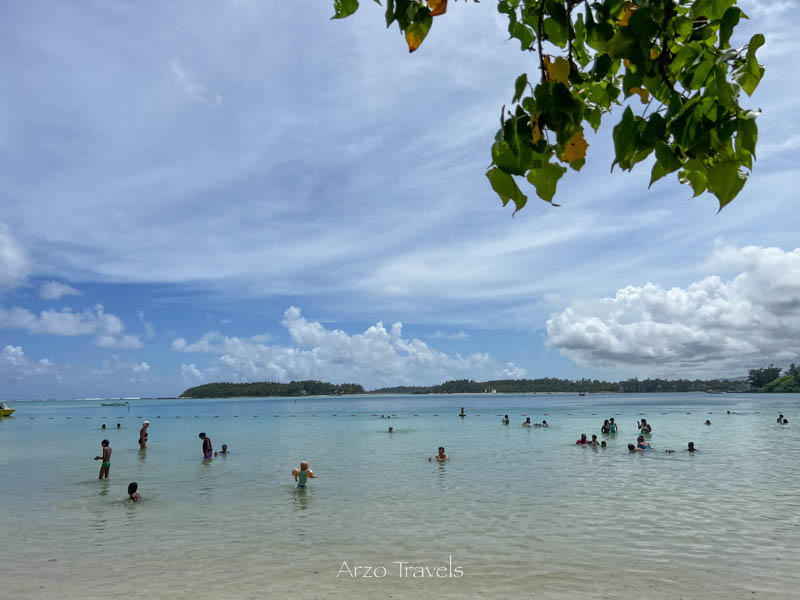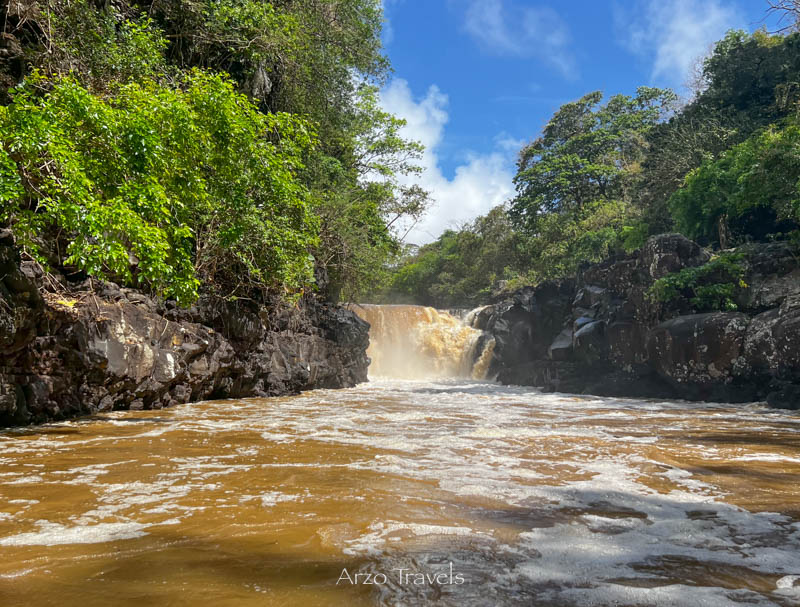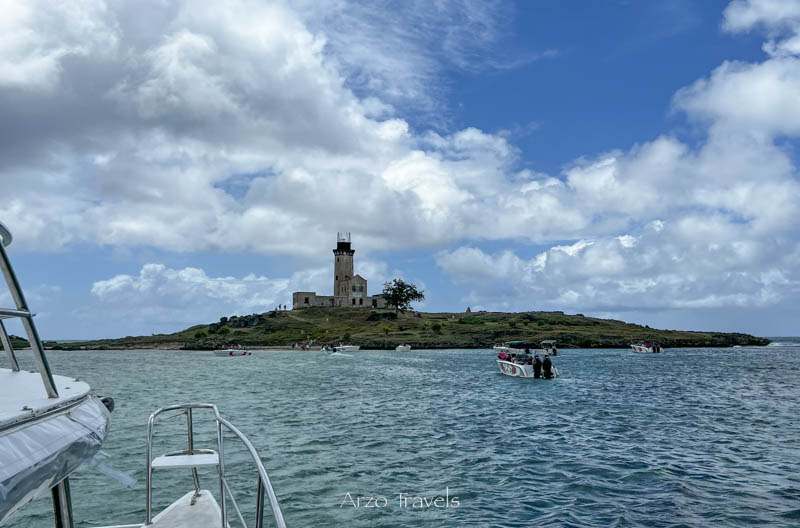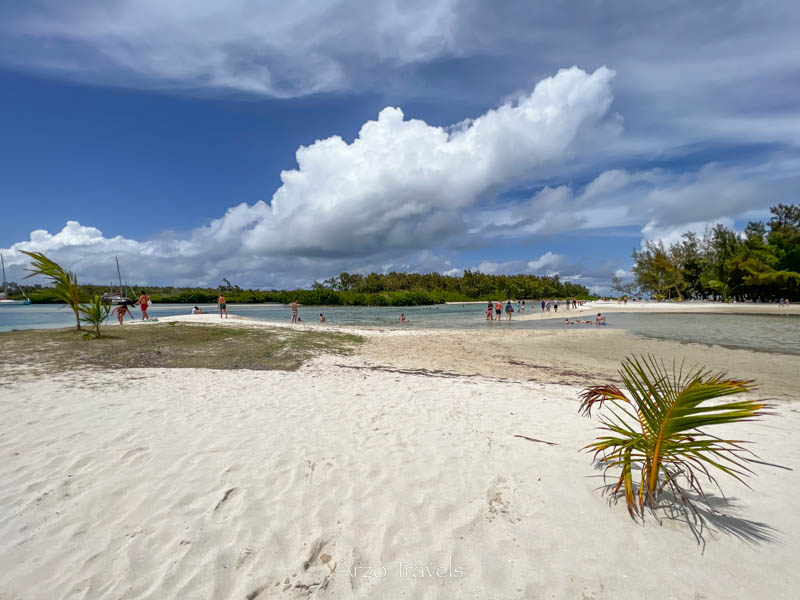HOW TO PLAN AN ITINERARY FOR MAURITIUS IN 10 DAYS
The beautiful island of Mauritius is so much more than gorgeous beaches. And if you have been wondering how to spend 10 days in Mauritius, you have come to the right place.
This 10-day Mauritius itinerary helps you plan your trip. I share the best places to visit, as well as travel tips to make your Mauritius vacation as smooth as possible.
I spent about 3 weeks on this gorgeous island and fell in love with this little paradise. Yet, since most visitors can only stay 10 or 14 days, I have decided to create a 10-day Mauritius itinerary.
This itinerary is a blend of relaxation and adventure – it caters to both the serenity seeker and the intrepid explorer looking for an authentic slice of island life because this mix is what I loved when I visited Mauritius.
Disclaimer: This post contains affiliate links. This means I might earn a small commission when you buy a product (at no extra cost to you) after clicking on my link. More about it here.
TRAVEL TIPS FOR 10 DAYS IN MAURITIUS ITINERARY
First things first: here are a few key travel tips to help you plan—like the best time to visit, how to get around, and what to know before you go.
BEST TIME TO VISIT
The best time to visit Mauritius is from May to November, when the weather is cool, dry, and sunny. This is the Mauritian winter, offering more comfortable temperatures for outdoor activities. May to October/November is ideal to explore the island’s vast natural parks and go hiking.
The rainy season typically occurs during the summer months, from November to April, with the heaviest rainfall from January to March. This period is also characterized by higher temperatures and, occasionally, cyclones.
VISA REQUIREMENTS
If you are from the EU, the US, the UK, or Australia, you do not need a visa. Upon arrival, you are granted a tourist permit that typically allows you to stay for up to 60 days, with the possibility of extending your stay up to 90 days after arrival.
However, you must meet certain entry requirements, such as a valid passport, confirmation of accommodation, sufficient travel funds, and a return ticket.
Check the latest travel advisories and regulations before traveling due to any potential changes in visa policies.
WHAT TO WEAR
In Mauritius, lightweight and casual clothing is the way to go due to its tropical climate.
For beach and resort areas, beachwear like swimsuits, shorts, t-shirts, and sundresses is appropriate.
However, bring cover-ups for when you’re not on the beach, as some areas may require modest attire (especially for temples). Smart-casual wear is commonly accepted for exploring the cities and dining out.
Due to occasional rain showers, a rain jacket or umbrella is practical. For outdoor activities like hiking, wear comfortable shoes and breathable fabrics. Don’t forget a hat, sunglasses, and high-SPF sunscreen to protect against the sun.
Also, bring a light sweater or jacket.
HOW TO GET AROUND
- Rental Cars: Renting a car in Mauritius is a convenient option. Rent vehicles at the airport or through various rental agencies across the island. You can discover less accessible areas, and since the island is relatively small, driving around is quite straightforward with the use of GPS or maps. However, they drive on the left side, and traffic, especially around Port Louis, can be stressful. Thus, I did not rent a car but used other modes of transport.
- Taxis: Taxis are available at taxi stands in hotels, airports, etc. They’re ideal for short trips or day-long hires with fixed itineraries. Negotiate the fare in advance as not all taxis use meters. I rented a “whole taxi for a full day” and visited all those places I could not with my guided group tours or by bus.
- Buses: The bus system in Mauritius is quite extensive, covering most tourist destinations, and it is very affordable. Buses run regularly, though less frequently in the evening, and vary from standard to express services, the latter offering fewer stops and more comfort. I used buses a couple of times, including to get from Grand Baie to Port Louis (and return) and to several beaches from Grand Bay. Using public transportation as the only means of transport for 10 days in Mauritius might be a bit tricky though.
- Bicycles and Scooters: For short distances, you can rent bicycles and scooters. Perfect if you want to enjoy scenic routes at a slower pace, but it’s less ideal for long-distance travel or navigating the island’s hilly terrain.
- Guided Tours: Guided tours are an excellent way to see Mauritius with the benefit of a knowledgeable guide. These tours often include boat tours to the surrounding islands. Most of the time, I booked these guided tours (mostly group tours), but also a private tour.
SAFETY TIPS
- General Safety: Mauritius is considered relatively safe for tourists. However, as with any destination, take standard precautions, such as securing valuables and being cautious in less populated or poorly lit areas.
- Health Safety: Tap water is generally safe to drink, but bottled water was my way to go as I did not want to get sick during my travels. Hospitals and clinics are available, with private health facilities with higher standards of care.
- Road Safety: Be aware of varying road conditions and occasionally undisciplined driving habits. Avoid driving at night, especially on unfamiliar, winding roads.
- Natural Hazards: Mauritius is prone to cyclones between November and April. Stay informed about the weather and heed local advice if a warning is issued.
- Water Safety: When engaging in water sports or swimming, be mindful of the flag system on beaches and only swim in designated areas to avoid strong currents and undertows.
- Personal Belongings: Petty theft and opportunistic crime can occur, particularly in crowded areas like markets or beaches. Always watch personal belongings and use hotel safes when available.
- Emergency Services: Familiarize yourself with local emergency numbers and the location of your embassy. The police force is approachable and helpful in handling tourist inquiries and incidents.
WIFI IN MAURITIUS
WiFi in Mauritius is available in most hotels, resorts, and guesthouses, often free of charge. Some cafes, restaurants, and public spaces in urban areas also offer free WiFi spots (though I sometimes also ended up in some places without any WiFi). In general, WiFi is not as fast as in many parts of Europe, so if you rely on fast internet, read the reviews of hotels carefully before booking.
Local SIM cards with data plans that provide internet access island-wide could be an alternative if you need reliable internet.
MONEY
The official currency of Mauritius is the Mauritian Rupee (MUR). You can exchange money at the airport, banks, and hotels. ATMs widely available across the island.
Credit cards (and Apple Pay these days) are accepted in most hotels, restaurants, and shops, but carrying some cash is advisable for small purchases and in rural areas.
Exchanging money outside of official bureaus or banks might give you a less favorable exchange rate.
10-DAY ITINERARY FOR MAURITIUS
So, here are my recommendations for how to spend 10 days in Mauritius.
5 DAYS GRAND BAIE
I would choose Grand Baie (also written Grand Bay) as a base for the first part of the itinerary. This way, you can easily explore the north and the west before spending the rest of your trip in the southeast.
DAY 1 – GRAND BAIE
So, if you arrive in Grand Baie during the day, settle in and explore Grand Baie.
GRAND BAIE
Grand Baie is a vibrant and popular coastal village with beautiful beaches, a bustling nightlife, and good shopping opportunities. It’s a hub for water activities such as sailing, windsurfing, and waterskiing, with clear, calm waters perfect for swimming and snorkeling.
Grand Baie’s sheltered bay, with its emerald-green waters, is a popular spot for yachts and boats—basically the maritime gateway to Mauritius.
But it’s more than just a pretty coastline. Grand Baie gives you a taste of the island’s culture too—think street food stalls next to stylish restaurants, cute craft shops, and vibrant markets all rolled into one place.
Spend your first day soaking it all in. No matter when you arrive—morning or afternoon—start with a walk along Grand Baie Beach. Dip your toes in the sand, browse a few boutiques, and grab lunch or dinner at one of the food stalls or restaurants.
The public beach is a nice spot for a swim, though it’s not the most impressive one on the island. It’s fairly small and not very deep, but the warm, shallow water is perfect for easing into island life, especially if you’re new here. Just bring a towel, some beach basics, and enjoy a few laid-back hours by the sea.
PEREYBERE PUBLIC BEACH
INFO: You can also use the bus (or taxi) to get to Pereybere Public Beach and return to Grand Baie by bus. The ride just takes about 10 minutes and costs less than one US dollar.
DAY 2 – 3 ISLAND TOURS
Grand Baie is the perfect starting point for your first excursion – get on board a catamaran or speedboat to see three islands in the north of Mauritius. You can book a tour either online or on the spot (it might be a bit cheaper, but you do not have to find a tour company, and you cannot read the reviews).
The tour might slightly differ depending on which tour operator you book with, but most of the tours look like this.
FLAT ISLAND & GABRIEL ISLAND
The journey sails towards the enchanting Flat Island, where you can tour the serene reserve, bask on the immaculate beaches, and then head to the serene Gabriel Island, which is just opposite.
Both islands are stunning—think crystal-clear water, soft white sand, and all the tropical paradise vibes you could ask for. You’ll have time to snorkel in the calm lagoon or just relax on the island’s famous sandbar and enjoy the sunshine.
After that, it’s usually time for a BBQ lunch on the catamaran. Vegetarian options are very limited, so definitely mention it when booking—though to be honest, I didn’t get an alternative, so don’t set your hopes too high. At least there are drinks to go with the view!
COIN DE MIRE
Heading back, you will pause at Coin de Mire – this unique-looking island cannot be set foot on, but depending on your exact tour itinerary, you might have the chance to do some more swimming and snorkeling here.
This trip will most likely take a full day – and once you are dropped off again in Grand Baie, you might be happy to have dinner at the beach area and call it a day!
P.S. Depending on what kind of people you travel with, it can be a really fun experience. Our boat turned into a party boat with a big local family! Mauritians definitely know how to party.
DAY 3 – SOUTHWEST TOUR
This might be a long day, but you get the chance to experience a different side with a Southwest Tour starting from Grand Baie. Again, it depends on what tour exactly you book, but most SouthWest Tours look like this (and if you drive yourself, you can just steal this itinerary).
TROU AUX CERFS
The southwest scenic tour starts with a hotel pick-up before heading towards your first destination, Trou Aux Cerfs.
This popular natural landmark in Mauritius is actually a dormant volcanic crater. It sits about 605 meters above sea level, stretches 350 meters across, and is roughly 100 meters deep.
Unlike many volcanic sites, Trou aux Cerfs is surrounded by a lush forest with native plants and tall, green pine trees—more peaceful nature spot than dramatic crater.
The views are lovely, but I found that the lack of striking volcanic features makes it a bit underwhelming. A quick 10-minute stop felt just right to me—especially with so many other exciting places waiting to be explored that day.
GRAND BASSIN
Then it is time to visit Ganga Talao, often referred to as Grand Bassin, a serene crater lake situated about 550 meters above sea level in Mauritius’ mountainous Southwest.
Along the lake’s edge, you’ll find a Hindu temple and several small shrines dedicated to Lord Shiva and other deities. The highlight is a towering 33-meter statue of Lord Shiva—the tallest in Mauritius—which radiates a peaceful, almost otherworldly calm.
This sacred site draws many visitors, whether for prayer, quiet reflection, or just a scenic walk around the lake.
We had about an hour here, which was more than enough to explore the area and visit the main temple. Just a quick tip: don’t forget to take off your shoes before entering any temple buildings.
BLACK RIVER GORGES NATIONAL PARK
The Black River Gorges National Park, established to preserve the island’s natural vegetation, is one of Mauritius’s main sights. It protects much of the island’s remaining rainforest and is a haven for numerous wild animals and bird species.
The Gorge Viewpoint offers an incredible panoramic view over lush green landscapes, with dramatic cliffs and even a waterfall cascading in the distance. The elevated position makes the scenery feel especially grand—and yes, that waterfall to the right really steals the show.
The short path to the viewpoint is lined with souvenir stalls, which adds a lively touch to the experience. And if you’re lucky, a curious group of monkeys might pop by to say hello.
The best part? The walk from the parking lot to the viewpoint took me all of two minutes. Honestly, there’s nothing quite like getting jaw-dropping views without breaking a sweat!
SEVEN COLORED EARTH
A must-see in Mauritius is the Seven Colored Earth—a natural wonder that draws in curious visitors from all over. This unique phenomenon was formed when basaltic lava slowly turned into clay minerals, creating a surreal, almost lunar landscape of multi-colored sand dunes. It’s one of those places that truly looks like nature decided to show off a little.
Surrounded by lush greenery, this geological wonder showcases sand in seven distinct shades—red, brown, violet, green, blue (though honestly, I couldn’t spot the blue), purple, and yellow. It’s a stunning reminder of just how creative nature can be.
The site also includes a small Tortoise Park and a Souvenir Shop, where you’ll find a nice selection of local Chamarel products—perfect for a small gift or just a treat for yourself.
Like most stops on this trip, a short visit was plenty. I spent about an hour wandering the area and grabbed a drink at the café before moving on.
CHAMAREL WATERFALL
As Mauritius’ highest single-drop waterfall, the Chamarel Waterfall is nothing short of spectacular. Dropping about 100 meters, it’s fed by three streams that merge into the Saint-Denis River, creating a strong, thundering cascade. At its peak, the flow can reach over 40,000 cubic meters per minute—yep, that’s a whole lot of water!
You can view the Chamarel Waterfall from two spots—either the upper deck at the Chamarel Seven Colored Earth Reserve or from a lower vantage point a bit further down.
It’s one of the most iconic waterfalls in Mauritius, and absolutely worth the stop. The best part? Once you’re in the park, it’s just a short walk with a few steps to reach the viewpoint. No hiking boots required!
Yes, this is definitely a full day—but honestly, it ended up being one of my favorites in Mauritius. After admiring the falls, we had lunch in the charming village of Chamarel, and the whole group tour was just relaxed, scenic, and so well-paced. Highly recommend it if you’re up for a day packed with beauty and variety. I definitely loved this waterfall.
DAY 4 – DOLPHIN SWIMMING & ILE AUX BENETIERS
This day means a very early start, but for some, seeing dolphins – and swimming with them – might be worth all that.
SWIMMING WITH DOLPHINS
If you’re hoping to see dolphins in Mauritius, your best chance is along the southeast coast (though I actually spotted a few in the west as well). Once you arrive at one of the beaches, you’ll hop onto a speedboat and head out into the open sea for your dolphin encounter.
Once you reach the spot where the dolphins are, you’ll usually have the chance to swim alongside them.
Now, I have to be honest: dolphins are incredible. The first time I saw them in the wild—in the couth of Zanzibar—I actually cried tears of joy. It was one of those pure, unforgettable travel moments.
In Mauritius, though, the experience felt a bit different. There were just too many speedboats and too many people crowding around the dolphins. It didn’t have the same natural, magical vibe as that unexpected encounter I had in Zanzibar’s south.
That said, if you’ve never seen dolphins before, this can still be a great opportunity to experience them up close. But if swimming with them in a quieter, more natural setting is what you’re after, I’d recommend skipping the swim and just booking a boat tour without that part.
CRYSTAL ROCK
Next up: a stop at the natural Crystal Rock, located in the southwest of the island near the lagoons of Le Morne. This striking rock formation rises out of the turquoise water like something out of a painting—definitely one of those places that makes you reach for your camera without even thinking.
Its unique position and the crystal-clear water around it make Crystal Rock a fantastic spot for a bit of underwater exploration or a quick snorkel.
That said, I found a short stop was more than enough before heading off to the next phenomenal destination. It’s cool to see—but it’s definitely more of a photo-op than a place to linger.
ILE AUS BENETIERS
My tip? Book a tour that includes a stop at Benitier Islet and a beachside lunch. Most tours offer a classic BBQ with plenty of food, along with alcoholic and non-alcoholic drinks. Vegetarian options are usually limited, so definitely mention your preferences when booking—just don’t expect a full veggie feast.
After lunch, it’s time to kick back and relax. Whether you prefer soaking up the sun, going for a swim, or taking a slow stroll along the island’s wide shoreline, this is the moment to just enjoy.
This part of the island is definitely touristy—you’ll find plenty of small stalls selling souvenirs and drinks. And to be honest, the food didn’t exactly wow me (yep, I’m one of those vegetarians who’s just happy with good veggies and fruit).
But despite that? I loved the vibe. It had this unexpected Caribbean feel, and it ended up being one of my absolute favorite spots in Mauritius.
DAY 5 – PORT LOUIS & BOTANICAL GARDEN
PORT LOUIS
Port Louis, the capital of Mauritius, is a vibrant mix of cultures, colors, and contrasts, all set against a dramatic mountain backdrop. It’s a true melting pot—you’ll see it in the architecture, taste it in the food, and feel it in the energy of the festivals and bustling streets. This city is where Mauritius’ layered history and multicultural heartbeat come alive.
The city’s Caudan Waterfront is a lively hub packed with restaurants, shops, and entertainment. Just a short walk away is the Central Market—a colorful spot full of fresh produce, local spices, and handmade crafts.
If you’re interested in history, visit the Aapravasi Ghat and the National History Museum. Both give powerful insights into Mauritius’ colonial past and the journey of its people.
Although Port Louis is a relatively small capital, it’s definitely hectic. After so many days lounging on beaches, I personally enjoyed a bit of city buzz—but I totally get it if you’d rather skip it and sneak in one more beach day instead. No judgment.
BOTANICAL GARDEN
The Pamplemousses Botanic Garden—officially called the Sir Seewoosagur Ramgoolam Botanic Garden—is one of the most popular attractions near Port Louis. It’s actually the oldest botanical garden in the Southern Hemisphere, and it’s absolutely worth a visit if you’re into tropical plants, shady walks, or just need a break from the beach scene.
It’s easy to combine a stop here with a trip to Port Louis, especially if you’re already exploring the northern part.
TIP: I got there by bus – the same day I went to Port Louis. You can take a bus, Line 215, from Grand Baie to Port Louis, and will be dropped off in the city center. It takes about 40 minutes and costs about 1€ (1¢), paid in cash on the bus. This bus also stops at the Botanical Garden.
